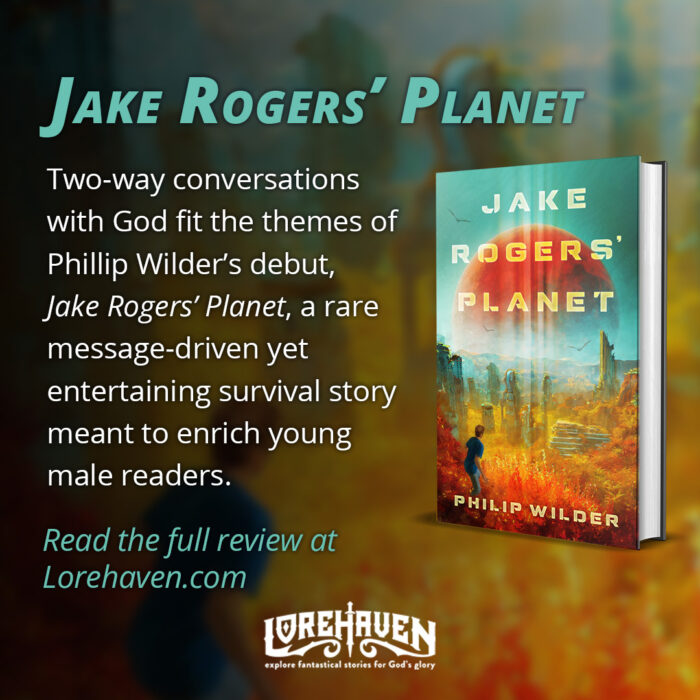Christians Can Grow in Faith By Studying, Not Cancelling, Secular Stories
My first article in this two-part series ignited controversy. I knew I was writing about a divisive topic, suggesting that we shouldn’t distance ourselves from enemy propaganda. So I wasn’t surprised to hear pushback. But I was surprised by the direction of response. Many people thought I meant to say that stories shouldn’t have messages. This was strange, because I never tried to suggest that idea, and my day job often involves teaching writers how to craft compelling themes.
This article series, however, is ultimately for readers and not writers.1 I also hadn’t yet finished my own message. In “Christians Can’t Consistently Blame Leftist Fiction While Pushing Our Own Propaganda,” I explored many Christians’ belief that we should avoid stories with secular themes, lest these ideas corrupt us. I cast doubts on that problematic view, yet saved the solution for this article, part 2.
If we don’t view stories as a propaganda battlefield, how else can we view stories?
Can we find healthier ways of engaging with stories’ positive or negative messages?
Out of the kingdom battlefield, into the castle academy
Until this past May, I taught English in public schools. There I spent most days sharing great works of literature with high school students. I taught a wide historical range of literature from Homer to Austen, Sophocles to Fitzgerald, Plutarch to Swift. Because I taught in the Bible Belt, most of my students at least claimed a nominal Christian identity, and I was exposing them to many books whose ideas clashed with our faith, such as Oscar Wilde’s bent morality, Lord Byron’s anti-Christian vituperations, and Aristotle’s misogyny.
Over four years of teaching, I heard no pushback (with the exception of one class session with a couple of controversy-seeking students). No one minded me teaching these books—even the ones that had really problematic ideas and themes.
Why? Because students understood this was a classroom. We purposed to think well about complicated ideas, using books to engage the world. Even books with bad messages gave us opportunities to discuss them meaningfully with classmates. No one fired up the keyboard to oppose our reading a book promoting Stoicism.
Here’s an example: Homer’s The Iliad. What if we used certain right-wing pundits’ paradigm to analyze this Greek classic? The book celebrates pagan gods (which the New Testament labels as demons) and treats women as mere trophies. Maybe we really ought to cancel this one. (Some ancient Christian writers like Tertullian may indeed have argued for cancelling it!) Yet my class used the work’s problems to explore the problems of such ideas. We use The Iliad’s strengths as a chance to learn much about our responses to grief, loss, and suffering in this life.
What happened? Our meaningful dialogue sharpened my students’ minds. Students and teacher alike grew through the process.
I posit that books are made for this sort of environment. Even books originally written for political purposes can become a part of this (such as Uncle Tom’s Cabin, The Aeneid, and 1984). The realm of stories ought not be a battlefield where we bless our own lore and seek to destroy our opponents’ mythologies. Instead, Christians can explore even disagreeable stories inside Kingdom castle academies.
What we learn from the academy of secular works
If we approach tales with secular themes more like scholars within castle academies, instead of battlefield soldiers, what can we learn better?
First, we find stronger faith—matured by wrestling with meaningful questions and challenges. Consider Holocaust survivor Elie Wiesel’s acclaimed memoir Night. Much of Wiesel’s story focuses on his faith deconstruction and his reasons for rejecting belief in God. Some readers would label this a destructive work. But this story also raises questions Christians must confront. Night left me with discomfort because it offered no answers. But when I dealt seriously with the book, carefully considering my response to Wiesel’s heart-rending cries, my faith got stronger.
Second, we gain empathy—better understanding alternate views when we peer into another person’s life. John Green’s novels encourage this shared experience. Green’s philosophy, as best I can understand it, seems to be a form of “pop nihilism” that I don’t share. Still, reading his books helps me better understand why certain people feel attracted to that view. When I walk through Greene’s stories in their heroes’ mindsets, I can better understand others. This helps me know how best to show Christian love toward them.
“But some of these authors are trying to propagandize its readers!” some might argue. To which I would reply: “So what?” Paul quoted hymns that the ancient Romans wrote to their false pantheon. If Paul—who labeled the Roman deities as demons—could find valuable material in hymns to such demons, can we not find similar benefits in stories with secular themes?
The castle doors are open, and it’s time for Kingdom learning
Despite all these benefits, it may still sound noble to avoid works with secular themes. But what if the Scripture tells us such a sentiment is actually unbiblical?
Christ commands us to be in the world but not of the world (John 17:14–16). The apostle Paul called the Corinthians to emulate his approach of being “all things to all people” (1 Corinthians 9:19–23). We may struggle to balance these passages with our call to holiness. Yet in this case, we must find ways to be in pop culture, but not of pop culture. We must engage our world without being defined by our world, participating in what is good while abhorring what is evil.
Whenever our “culture wars” may dominate our lives (including the literary world), let’s remember that we help build God’s kingdom not by acts of human power but by acts of love. Our best evangelism may come not in debate but in relationships. When we embrace stories as academic studies, instead of battlefield weapons, we train ourselves to engage the rest of our culture.
If we avoid boycotting problematic stories, and instead offer thoughtful praises and criticisms of those works, what conversations could we share with others? How much more could we strengthen our faith as we develop good responses to intellectual and emotional arguments? If we approach secular stories with invitations, not weapons, how could we improve our relationships with unbelievers?
On the battlefield, we kill enemies. In the academy, we can change students’ lives.
When we value thoughtful engagement over cancelling secular stories, we may discover this is the best way of persuading others to “cancel” their own false beliefs.
- Editor’s note: Almost every Lorehaven article, news post, review, or other resource is explicitly fan-focused. We do not intend to be a resource for writers. We suggest fiction creatives still need to practice thinking as fans first, creators second! ↩





































I didn’t consider that comm section all that controversial, mostly people talking about how they define “propaganda.” I think it’s a useful question.
What a lot of non-lit majors don’t realize is that plenty of books are capital-i Important without being, y’know, enjoyable. And often they are Important for scholarly reasons rather than popularity reasons.
And what a lot of culture-warrior Christians don’t realize is that you can learn about a thing without necessarily believing in the thing. Burnett should put that on the statement of faith page.
There were comments elsewhere on social media and a few groups that pushed back on this piece more strongly than anyone in the comments here did!
Both of your comments are quite true here. Faulkner for me in college definitely fell into the “Important but not enjoyable camp!”
Josiah, I suppose I feel I’m still not sure what the suggested take away is–taking both articles and comments, into consideration. In the first article, the title and editorial suggested that if the sum of Christian literature has any propaganda itself, then “who are we to cast the first stone?”
While it ended unfinished, the responses found in the comment section indicate the same questions I felt left with. Is the suggestion that we are not to criticize? Or that pulling away from secular culture is inappropriate?
To Dreher’s quote, I thought to a better analogy, found in coffee. If you’ve ever cut out coffee, even for a single week, it can have a highly detoxifying effect. A single cup of coffee after quitting for a week will buzz you like mad. It makes you painfully aware of how much coffee affects you. The same is true when one makes the conscious choice to pull back from culturally “acceptable” media–You begin to realize just how much you had grown to tolerate, whether violence, vulgarity, sexuality, or wokeness. Your sight becomes clearer. In fact, you could argue that this detoxification allows you to better provide critique of those works that are in question here.
This leads us to the second article, which lauds some of the benefits to a scholarly debate versus the problems of boycotting, and equating boycotting to waging war. Does not our choice to withdraw from that which may trigger us, or causes us issue, instead begin to wage war not with society, but with our own flesh? If one person has violent tendencies, isn’t avoiding media that incites violence the best way to avoid violent thoughts? To those that perhaps are feeling attacked, or wish to lash-out at the “woke” world we face–taking time away from social media, away from the feeling of being force-fed secular philosophies is one of the best ways to realign yourself to the Word, just as Jesus did, continually stepping away to spend time in fellowship with the Father. It may even lead to realizing that you are not personally being attacked or force-fed. Only numbed to it.
Personally, I think the issue at hand is not how woke literature is becoming, but instead, how ham-fisted it is at times. A single forced scene can ruin a book. A single Straw Man argument derails the entire piece. A single bad “coming to faith moment” injects a lens of cringe in a poorly executed Christian Faith movie. Should we consume these ruined stories? There are plenty of examples of “propaganda” or satire done right, due to skill, nuance, or timely-ness (Animal Farm immediately comes to mind.)
Is your suggestion is that we neither boycott, nor enter healthy criticism? Secular messaging has been implicit in all books printed since, well… the printing press. How do you suggest then, that we interact?
-Andrew D Meredith
Hey Andrew!
Thanks for commenting with these great thoughts. Sorry that I didn’t see this comment earlier! I am completely in favor of engaging in healthy criticism with works containing secular themes–and hopefully that came out in these articles. My intended takeaway is that readers would feel the freedom to engage thoughtfully (and at times critically!) with works instead of wondering if it’s more “spiritual” to boycott works of contrary material.
I do agree that if someone has particular struggles with a specific sin, avoiding media that could encourage that would be a prudent approach. And I would also agree that it’s possible to get too wrapped up in the world of secular media–a balance between that and works that are more directly spiritually edifying is needed in this world.
This article was originally written as a solo article, and when we split it in two due to space concerns, I think there were a few trains of thought that got a bit muddied in the process of splitting it. But hopefully that helps to explain what I’m arguing for here!